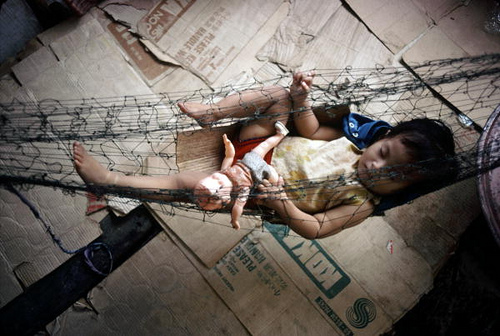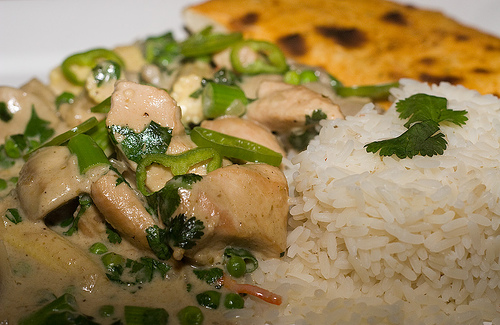
Avyanthi (Avie) Azis writes on the undocumented struggling to make sense of life and love in Kuala Lumpur. This is a three-parter series, Part 1 can be read here.
I came to KL to do fieldwork. Yes, fieldwork in urban setting. In my project proposal, I stated that I intended to do an ethnography of statelessness. It turned out that it was more of an ethnography of leaving. My research was always threatened by the fact that many of my key respondents were leaving, headed to Australia in dinghies. And paying around RM5,000 for that. Madness! But that’s how to travel the world if you have no passport.
Remember Noah? He had no passport too. Trains, planes and cars are nothing but recent inventions. Nothing like boats, ships, arks. O the mighty sea! The sea still carries! (But we modern people, how far removed are we from it. We’d like to stay dry, thank you. If you want to bring some liquid into the flight cabin, please remember we have rules.)
Among the potential boat people was my favorite respondent, Mohammed Noor. In the true Malaysian fashion, of course, he was Mat Nur. In contrast to his tragic plight, Mat Nur had a somewhat comical look. He reminded me of a quiet, minor character from The Simpsons. Sideshow Mel, Krusty the Clown’s new sidekick after the evil Sideshow Bob was sent to prison.
I used to visit him in Serdang. He had severe back pain, but he did all the house chores. Neighbors teased that he indulged his wife too much. His wife was plump with pink cheeks; he was a rag of bones. I remember one day I was at his shabby flat, going through an interview with him when an emergency case presented itself. One of his friends, also a stateless Rohingya from Burma, could not take his newborn baby out of the hospital because the bill was not yet paid.
The hospital apparently did not understand the policy that all refugees holding UNHCR card were entitled to 50% discount of all hospital fees. The father in distress somehow couldn’t get through the phone with the refugee agency, so he asked me to do it. I did not dare risk my crazy Malay to explain the situation so I spoke in English. “Yes, please use the white men’s language,” the Rohingya people said. They gathered around me as I made the phone call.
The voice at the other end spoke flawless English with just some faint hint of a Chinese accent. The voice was educated, polite but distant. The polished speech of a bureaucrat. He asked if the Rohingya man in question was registered with his good office. I gave his name and identification number. The officer looked it up on his computer (I imagined from the other end of the line, I heard some tapping on keyboard).
There was no sense of urgency on his part. It was just as if I had been telling him that the weather was not so nice today and he agreed, but there was nothing to be done about it, because, well, it was the weather, wasn’t it? At the end of the day, the UN agency finally agreed to interfere and the baby was released, much to the delight and relief of the father.

Everyone was jubilant, but Mat Nur quietly inquired,
“Kakak, are we boring?”
I was startled.
“Are we making you bored?”
“What do you mean? How could you possibly make me bored?”
“I imagine it must be boring, listening to our sorrow talk all the time,” he said timidly.
My heart shrank.
Then he asked, completely changing the subject,
“Do you like cintawan?”
“Eh?” Cinta means love. But I wasn’t sure what he meant. In Bahasa Indonesia, the suffix -wan refers to someone who does, so cintawan, is that Malay for someone who loves? Do I like lovers? What kind of question is that?
“Here, cintawan,” he showed me a plastic bag full of mushrooms.
“Oh, cendawan.. ,” I finally saw what he meant.
“Yes, cintawan, I’m cooking cintawan for you.”

Mat Nur then disappeared to the kitchen, turning fresh cintawan to a pot of curry. I knew now that it was mushrooms, but still to me it sounded that he was about to cook some lovers. Lovers curry, I learnt about an hour later, was burningly spicy and delicious.
The last time I saw him, Mat Nur and his wife gave me a box of chocolate. Not a fancy one, of course, but still it was special. Nobody had ever given me a box of chocolate before (my love life is rather uneventful, obviously). Little did I know it was a farewell gift. A few days after presenting me with the grand gesture, he really left. I had spent the previous weeks convincing him to abandon such risky journey, but in the end it was his choice.
It was a dangerous undertaking, but it was not irrational. It logically must come down to this. There are methods of resistance. First, you take space. When you cannot take space, you take speech. When that’s not allowed, you take flight.
I heard Mat Nur left via Penang. Penang again. How many hours does Penang sleep a day? The pelarian slip in and out of the country, living their nightmares in motion. The locals slip in and out of consciousness, unaware or don’t care.
Avie Azis survives on a string of odd jobs. She is now doing research on fiddler crabs. She hates the fact that thosai and ice cream soda are very difficult to find in Indonesia.

Avie,
I cannot express what I felt when I finished reading this. I just want to thank you for allowing us a glimpse, a peek into this world. Which is our world. Thanks, Avie.
Avie – yet another wonderful second-parter to Flight from Incheon. Your sensitivity towards the refugees (for they are more than just the undocumented!) shines through. I hope you get to come back to Malaysia and work!
Thank you for this, and for your work. I hope, someday, when we are wiser, and the world's older (never mind that I'm quoting Disney lyrics!)- these stories of the pelarian will be collected and we will be able to freely celebrate the courage of those who decided to go on living. Who find joy in the simple pleasures of a cintawan or two, for today.